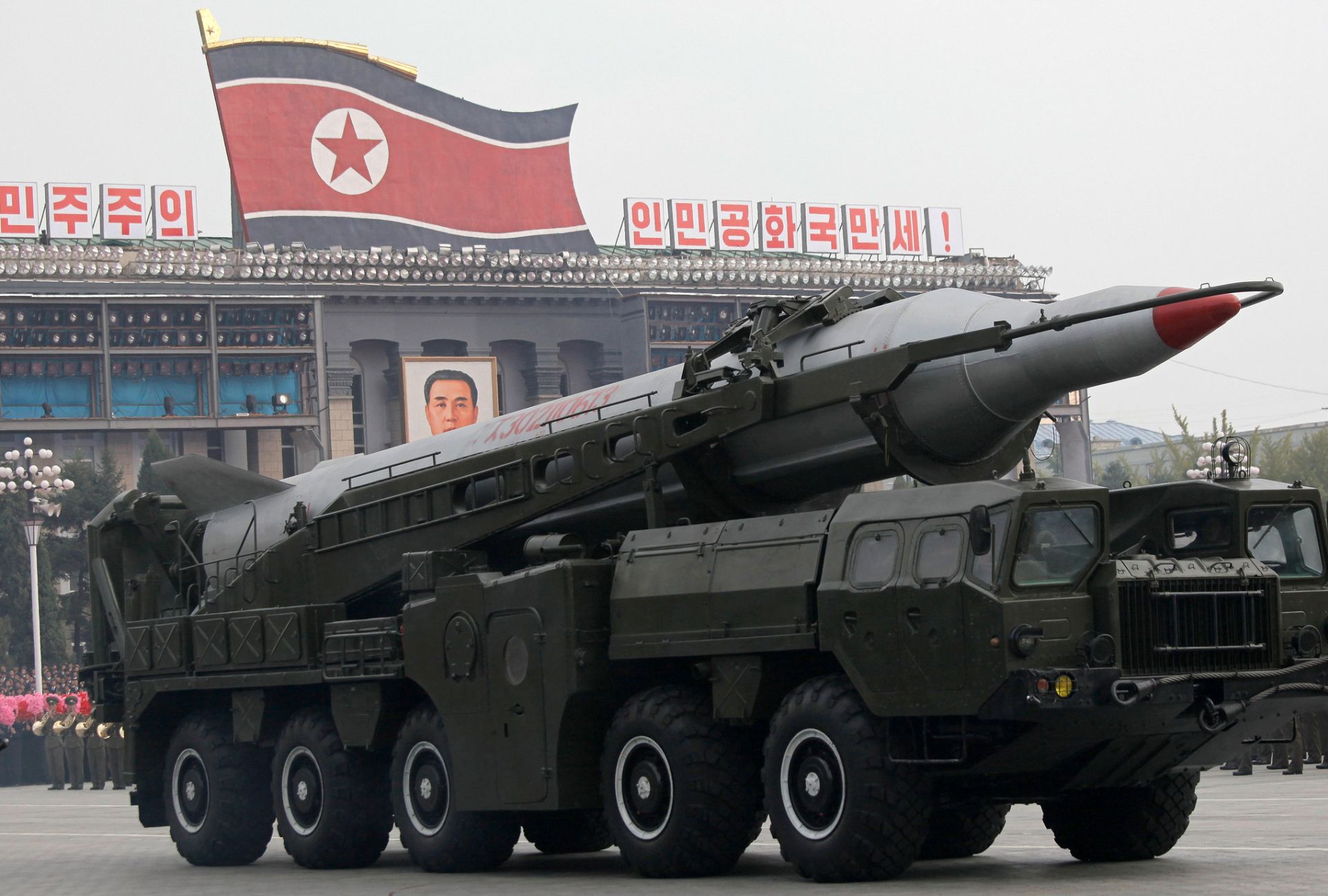North Korean leader Kim Jong-Un has ordered an upcoming nuclear warhead test and multiple ballistic missile launches, escalating Pyongyang’s face-off with the international community just days after being slapped with tough UN sanctions.
The order came after Kim monitored what was described as the successful simulated test of the warhead re-entry technology required for a long-range nuclear strike on the US mainland, the North’s official KCNA news agency said Tuesday.
Military tensions have been soaring on the divided Korean peninsula since the North carried out its fourth nuclear test on January 6, followed a month later by a long-range rocket launch that was widely seen as a disguised ballistic missile test.
The UN Security Council responded earlier this month by imposing its toughest sanctions on North Korea to date.
Pyongyang, meanwhile, has maintained a daily barrage of nuclear strike threats against both Seoul and Washington, ostensibly over ongoing, large-scale South Korea-US military drills that the North sees as provocative rehearsals for invasion.
Tests ‘in a short time’
In order to boost the reliability of the nation’s nuclear deterrent still further, Kim said a nuclear warhead explosion test and firings of “several kinds” of ballistic rockets would be carried out “in a short time”.
“He instructed the relevant section to make pre-arrangement for them to the last detail,” KCNA said.
The order came days after state media released photos of Kim posing with what was claimed to be a miniaturized nuclear warhead capable of fitting on a ballistic missile.
Meeting with her cabinet ministers on Tuesday, South Korean President Park Geun-Hye said North Korea’s endless threats reflected a “sense of crisis” in Pyongyang at its increasing diplomatic and economic isolation.
“If North Korea continues its provocations and confrontation with the international community and does not walk the path of change, it will walk the path of self-destruction,” Park said.
While North Korea is known to have a small stockpile of nuclear weapons, its ability to deliver them accurately to a chosen target on the tip of a ballistic missile has been a subject of heated debate.
There are numerous question marks over the North’s weapons delivery systems, with many experts believing it is still years from developing a working inter-continental ballistic missile (ICBM) that could strike the continental United States.
Tuesday’s KCNA report was accompanied by photos of Kim personally monitoring a test simulating the intense heat a nuclear warhead would experience during atmospheric re-entry.
Re-entry ‘guarantee’
Protected by “newly developed heat-resisting material” the warhead was reportedly subjected to thermal flows five times hotter than those associated with ICBM flight.
The test was a complete success, the agency said, and provided a “sure guarantee” of the warhead’s ability to withstand re-entry — a major step in the North’s push towards a genuine ICBM nuclear strike capability.
South Korea’s defence ministry said it was skeptical of the claim.
“According to our military analysis, North Korea has not yet secured re-entry technology,” ministry spokesman Moon Sang-Gyun told reporters.
North Korea has never tested an ICBM, although it has displayed such a missile, known as the KN-08, during recent mass military parades in Pyongyang.
“It seems highly likely that North Korea is on the verge of conducting a long-range ballistic missile test, involving re-entry,” said Chang Yong-Seok, a senior researcher at the Institute for Peace and Unification Studies at Seoul National University
“It wants to show that sanctions are not effective and to boost the credibility of its deterrent,” Chang said.
Melissa Hanham, an expert on North Korea’s WMD program at the Middlebury Institute of International Studies in California, voiced concerns over just how far the North would go to “prove” its technical abilities.
China tested a medium-range ballistic missile with a 12-kiloton nuclear warhead in 1966, the only time a country has flight-tested a nuclear-tipped ballistic missile over populated areas.
“I don’t know how North Korea’s neighbors could distinguish testing a nuclear-tipped KN-08 from an attack. It would be very dangerous, very destabilizing,” Hanham said.










